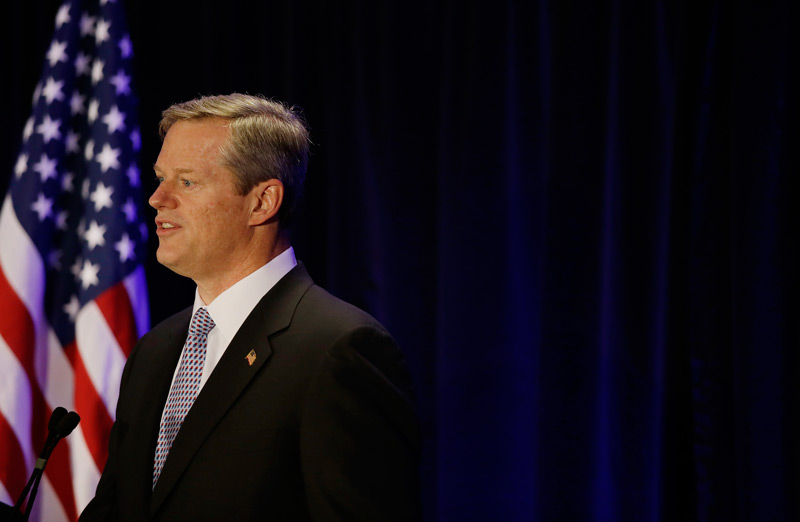
As happens after every election, we’ll all try to assign what we see as the definitive reasons for the victory of Charlie Baker and defeat of Martha Coakley on Election Day. Even though most of us will be sure our reasons are right, there is a lot more luck involved in such outcomes than most of us allow. So let’s consider what political scientists John Sides and Lynn Vavreck call choice and chance in this election.
Charlie Baker’s first choice was to run the campaign he wanted to run. This may seem a somewhat obvious choice but he has expressed displeasure that he didn’t do that in 2010. As recently as his final advertisement Remarkable State aired on Monday night, his wife Lauren says to him, “This is it. You’ve run the race you wanted to run.” Baker responds, “That is the most important thing of all, by far.”
For Coakley, just getting into the race was an enormously risky choice. As we all know she suffered the bitter disappointment of her loss to Scott Brown in the 2010 special election for the United States Senate.More than that disappointment was the unforgiving reaction of many Democrats in the state who seemingly will never forgive her for a loss that had little to do with her gaffes and more to do with the poor performance of the national economy at that time under President Obama. Nonetheless, she did a remarkable job in returning to her office, winning re-election unopposed, and having the courage to offer herself for another statewide race with an uncertain outcome. She also chose to put together an excellent campaign team and to work harder than ever; those choices showed in improvement on the stump and in debates. No she is not Deval Patrick or Elizabeth Warren, but her choices brought great credit to her.
I could go on in some detail about luck and have the field to myself, because I doubt much commentary will linger on the role of fortune (whether of known-unknowns or unknown-unknowns). Let me offer just a few examples. Baker was very lucky that the Patrick administration’s serial failures made public administration the mad, hot sexy issue of 2014. That fit perfectly with his reputation as an excellent manager.
Coakley was unlucky when public polls went wildly off course in showing her poised for a blowout win in the Democratic primary and instead, she prevailed by only six points over Treasurer Steve Grossman. Primary polling is much more difficult that general election polling and as my colleague Professor Duquette argued over and over, the race would be much tighter than polls would show. When Professor Duquette turned out to be right, the pollsters skipped off to the general and Coakley was left with the revived perception of weakness for not beating Grossman more handily.
Baker was lucky and Coakley was very unlucky that the Republican Governor’s Association made the choice to spend wildly in support of Baker’s campaign, while the Democratic Governors Association chose to sit on its fat wallet and not spend in a winnable race for Coakley.
The death of Mayor Tom Menino was an unknown-unknown. Did the coverage of his life and funeral draw attention away from Baker’s fish tale or the charge that Coakley had winked at Sal DiMasi’s transgressions? Unknowable.
In his book Thinking, Fast and Slow, Nobel laureate Daniel Khaneman recounts that he was once asked for his favorite equation and instead produced two:
Success = talent + luck
Great success = a little more talent + a lot of luck
As the late Professor Alan Rosenthal wrote, being governor is The Best Job in Politics. Governor-elect Charlie Baker is a very talented guy; but he is also a very lucky one.

